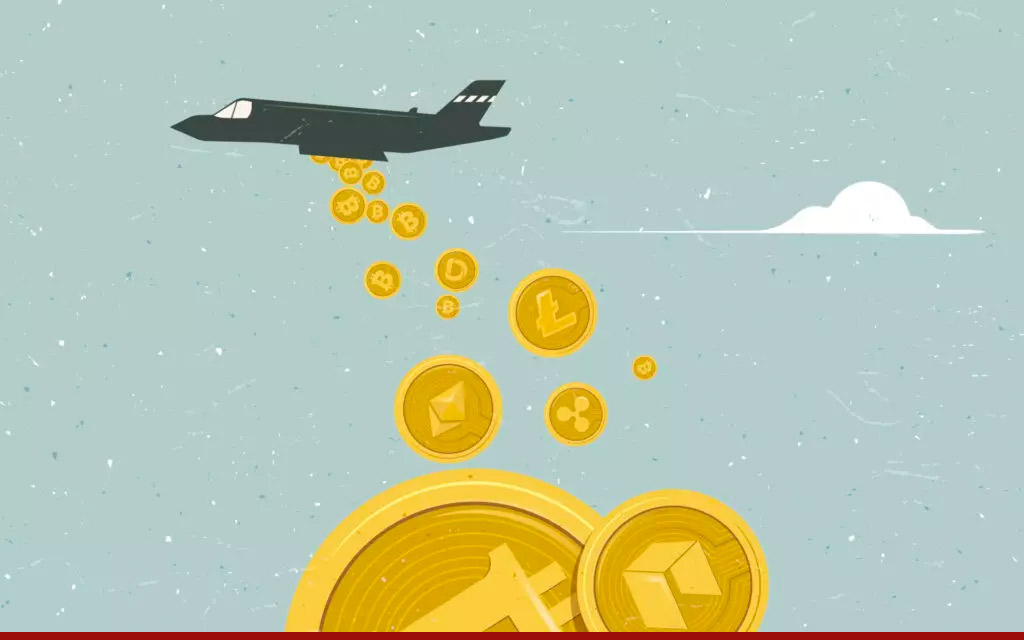Russia and Ukraine are among the world’s most crypto-conscious countries. Now cryptocurrency is helping both sides. Russians want to evade sanctions, while Ukraine aims to tap crypto wealth.
It’s no accident that the world’s first digital cryptocurrency, Bitcoin, arrived on the scene shortly after the 2008 global financial crisis. It initially appealed especially to two distinct audiences. First, to a new generation of mid-to-upper-income citizens in developed countries who’d seen their parents’ wealth decimated thanks to greed-driven speculation and lack of regulation in financial markets. Second, to a new generation raised in autocratic and undemocratic countries rife with corruption in their banking systems. Both saw the possibilities and appeal of a decentralization of money away from the control of big banks and governments. Bitcoin introduced peer-to-peer (P2P) alternative transactions that eliminated the need for financial intermediaries, allowed for anonymity, and also rewarded crypto miners with currency.
It’s been more than a decade and countless debates have ensued, but Bitcoin and other cryptocurrencies still remain best known for their speculative and volatile nature. Yet in times of financial crises, when traditional access to funds is difficult, the spotlight once again moves to crypto. Unlike traditional assets, crypto can’t be frozen and can be used without ID, giving it a wartime appeal. Some call Russia’s invasion of Ukraine the first crypto war.
Crypto plays a cameo role on both the Russian and the Ukrainian sides of the battle. It can be amassed quickly, spent quickly, and avoids regulatory hurdles and transfer time. This is the first time in the history of war that crypto has had enough mass adoption to have any real effect on the conflict.
Before the war began, crypto markets and Bitcoin in particular were on a downward slope. But when traditional markets tanked in the days following the incursion, Bitcoin rebounded. (Though it has again slumped, it remains 10% above its pre-war low.) Michael Terpin, a noted crypto investor, reminded me in a phone interview that this is not the first time crypto has been seen as what sympathetic analysts call “digital gold”. In 2013, when Cyprus’s citizens were unable to get cash from struggling banks, the price of Bitcoin rose 87%. Terpin says that for most of crypto’s history, its ups and downs (and there have been many) were not tied to the gyrations of traditional financial markets.
But Russians Hope Crypto Helps Avoid Sanctions
Despite the Russian Central Bank’s noises about banning crypto last year, Russia remains the third biggest country for Bitcoin mining. It is estimated that over 17.3 million people, 11.9% of Russia’s population, own cryptocurrency, making it one of the largest national holders of crypto. (It’s not hard to see, especially right now, why Russian citizens would prefer any tool that enabled them to depend less on their government.) According to Chainalysis, Russia’s high rate of crypto usage is a testimony to crypto’s anonymity and decentralized design.
The spike in sales of Bitcoin in Russia in recent weeks can be partly attributed to its utility in bypassing sanctions. Russians turned hard towards crypto as the EU, US, UK, Switzerland and Canada were freezing the country’s $640bn (£478bn) currency reserves and curtailing many of its banks’ ability to transact through the SWIFT international payment system. The EU, meanwhile, is watching Russia’s crypto activities closely, hoping to prevent its use in evading sanctions.
The Ukrainian government in turn has asked major crypto exchanges to block all Russians, not just politicians and oligarchs, from getting access to trading platforms. But the response has been mixed. “It’s crucial to freeze not only the addresses linked to Russian and Belarusian politicians, but also to sabotage ordinary users,” tweeted Mykhailo Fedorov, Ukraine’s minister of digital transformation. Some exchanges complied; others did not. According to The Information, Binance, Coinbase, FTX, Kraken and KuCoin said they would only block or freeze the accounts of individual Russians who are the subject of sanctions or other legal bans. Others argued that blocking users so broadly goes against the principles of neutrality and open exchange that the exchanges are founded upon.
The Ukrainian Side Sees Crypto as Its Ally
While Russians use crypto to avoid sanctions, Ukraine’s leaders are using it to fundraise. And it’s working. Ukraine has been a leader in crypto adoption. On Twitter, the Ukrainian government recently asked for donations to support its defense against Russia. It even supplied the address of its wallet. According to research firm Elliptic, a week into the war Ukraine had amassed more than $50 million in crypto through more than 59,000 donations. This includes one $5.8 million donation from Polkadot founder Gavin Wood, and a CryptoPunk NFT worth over $200,000. Donations even included $6.5 million in proceeds from a Ukrainian flag NFT auctioned off by the Ethereum-based group Ukraine DAO.

UkraineDAO was founded with the help of Pussy Riot, the Russian rock band. It crossed crypto national lines to help create the new “decentralized autonomous organization.” Proceeds will be donated to Come Back Alive, a Ukrainian NGO that supports the country’s military efforts. The DAO says it has raised over $5 million so far, separate from the NFT auction. In addition, crypto giant Binance donated $10 million to Ukrainian refugees through local NGOs. Kuna, a Ukrainian crypto exchange, is managing the country’s crypto donations. You can track Ethereum donations to the cause in real time at Etherscan.
The increasingly central role of crypto amidst the conflict has gotten the financial world’s attention. Federal Reserve head Jerome Powell said this week that the situation surrounding Ukraine had “underscored the need for Congressional action on digital finance, including cryptocurrencies.”
So crypto is becoming the currency of the Ukrainian/Russian conflict, as a censorship-resistant way to do whatever you want with your money. Wired quoted Elliptic’s founder Tom Robinson: “Crypto has proved itself to be a robust way to fund wars.” It’s like the chocolate bars, whiskey bottles and nylons of WWII — a currency whose economy thrives in a time of scarcity.

Source: https://techonomy.com/crypto-goes-to-war/




